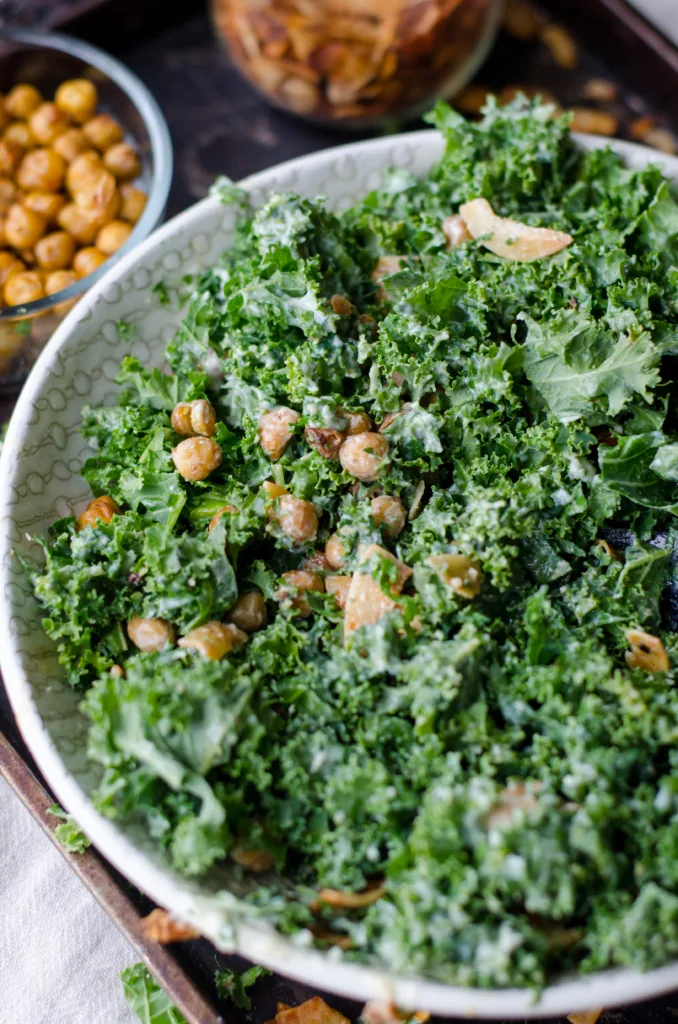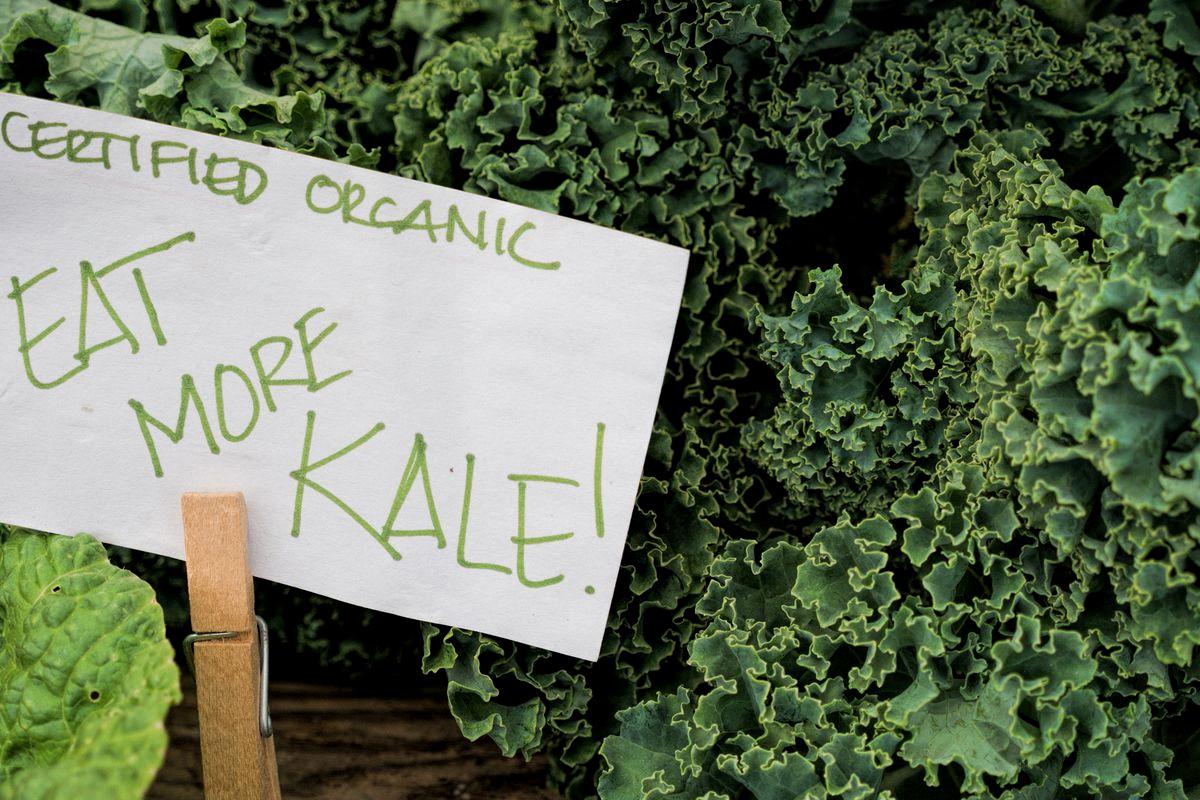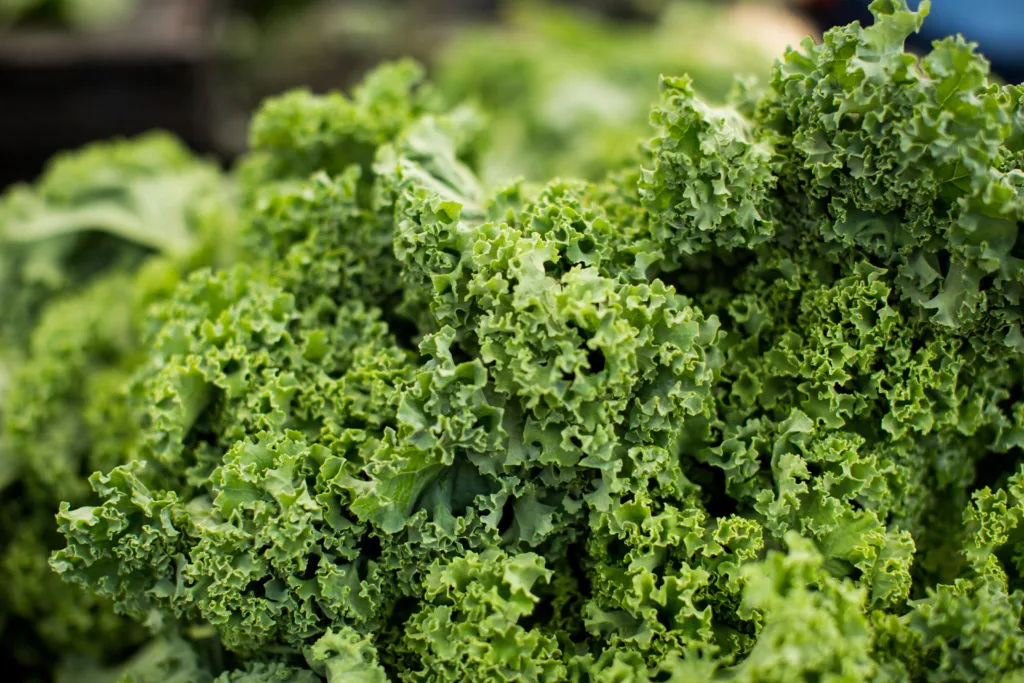Kale has been touted as a superfood for its numerous health benefits, including its ability to help cleanse the body of harmful toxins. However, one question that often arises is whether or not kale can make you poop.
The answer is yes, kale can help promote healthy bowel movements. Like other leafy greens, kale is high in fiber, which is essential for promoting regularity and preventing constipation. Fiber adds bulk to your stool, making it easier to pass through your digestive system.
In addition to fiber, kale is packed with other nutrients that can aid in digestion and promote healthy bowel movements. For example, kale contains magnesium, which helps the colon contract and move waste through the digestive system. It also contains potassium, which helps regulate fluid balance and muscle contractions in the digestive tract.
However, it’s important to note that eating too much fiber can also have negative effects on your digestive system. Consuming excessive amounts of fiber can lead to bloating, diarrhea, gas, and even improper absorption of nutrients.
Furthermore, kale is high in an antinutrient known as oxalic acid, which can interfere with the absorption of calcium and other minerals. This can lead to the formation of kidney stones in some people.
In addition, some people may experience gastrointestinal distress from cruciferous vegetables like kale if they have a C. diff infection. These individuals may need to avoid these types of foods until ther infection has cleared up.
Lastly, some people may have difficulty digesting FODMAPs, which are fermentable carbohydrates found in many plant-based foods, including kale. This can lead to bloating, gas, and other digestive issues.
While kale can help promote healthy bowel movements, it’s important to consume it in moderation and be aware of any potential digestive issues it may cause. As with any food, it’s important to listen to your body and make adjustments as needed to maintain optimal digestive health.
The Benefits of Eating Kale: Does it Clean You Out?
Kale can help clean your body out due to its high content of anti-cancer chemicals and antioxidants that aid in the removal of harmful toxins. These compounds work to neutralize and eliminate toxins from your body, which in turn helps to support overall health and wellbeing. Additionally, kale is rich in vitamins and minerals, including fiber, which can help promote healthy digestion and regularity, further aiding in the detoxification process. Therefore, incorporating kale into your diet can be a great way to help cleanse your body and support optimal health.

The Effects of Kale Consumption on Digestive Health
Kale is a leafy green vegetable that is packed with nutrients, including fiber. While fiber is an essential part of a healthy diet, consuming too much of it can cause gastrointestinal (GI) issues such as bloating, gas, constipation, and even diarrhea. However, it’s important to note that you would have to consume a significant amount of kale to experience these effects. In moderation, kale can be a healthy addition to your diet, but like any food, it’s important to listen to your body and consume it in a way that works for you.
The Impact of Kale on Bowel Movements
Kale is a leafy green vegetable that is known for its numerous health benefits, including its ability to promote healthy digestion and regular bowel movements. The reason why kale makes you poop is due to its high fiber content. One cup of kale contais about 2.6 grams of fiber, which is essential for maintaining a healthy digestive system. Fiber helps to add bulk to your stool, making it easier to pass through your intestines. Additionally, kale is rich in magnesium, which helps to relax the muscles in your colon and promote bowel movements. Furthermore, kale also contains potassium, which helps to regulate fluid balance in your body, preventing constipation and promoting regularity. So, overall, the high fiber, magnesium, and potassium content of kale are the key factors that make it a great food for promoting healthy digestion and regular bowel movements.
The Effects of Kale on the Stomach
Kale, a leafy green vegetable, can have both positive and negative effects on your stomach. On the positive side, kale is rich in fiber, which can promote regularity and prevent constipation. It also contains antioxidants, which can reduce inflammation and protect against certain diseases.
However, kale can also cause bloating and gas in some people. This is because it contains FODMAPs, a type of carbohydrate that can be difficult to digest for some individuals. If you have a sensitive stomach or irritable bowel syndrome (IBS), you may want to limit your intake of kale or avoid it altogether.
In addition, kale contains an antinutrient called oxalic acid, which can bind to minerals such as calcium and iron, making them harder to absorb. This can be problematic for individuals who are alreay deficient in these minerals or who consume large amounts of kale on a regular basis.
While kale can be a nutritious addition to your diet, it is important to listen to your body and pay attention to how it affects your stomach. If you experience discomfort or digestive issues after eating kale, you may want to speak with a healthcare professional or try limiting your intake.
The Effects of Kale on Colon Health
Kale can help clean out your colon. Kale is a leafy green vegetable that is high in fiber, which is essential for good digestive health. The fiber in kale helps to bulk up the stool and move it trough the digestive system, promoting regular bowel movements and preventing constipation. Kale is also rich in nutrients such as vitamins A and C, calcium, and iron, which can help support the overall health of the digestive system. Additionally, kale contains chlorophyll, which has been shown to help remove harmful bacteria from the colon and heal the mucous lining of the gastrointestinal tract. Including kale in your diet can be a great way to support your colon health and promote good digestive function.

The Effectiveness of Kale in Reducing Belly Fat
Kale is an excellent food for burning belly fat. It is low in calories and high in fiber, which makes it a great food for weight loss. Kale is also rich in antioxidants, which can help reduce inflammation in the body and promote better digestion. Additionally, kale contains a compound called sulforaphane, which has been shown to have anti-obesity effects. It helps to reduce the accumulation of fat in the body, especially in the belly area. However, it’s important to note that no single food can magically get rid of belly fat. A healthy diet and regular exercise are essential for achieving and maintaining a healthy weight. Including kale in your diet can certainly be helpful, but it should be part of a balanced and varied diet that includes othr healthy foods as well.
Negative Effects of Eating Kale
While kale is a highly nutritious vegetable, there are some negative effects of eating it that you should be aware of. One of the most significant risks associated with kale consumption is the development of kidney stones. This is bcause kale contains oxalates, which can bind with calcium and other minerals in the body to form kidney stones.
Another potential issue with consuming kale is its high vitamin K content, which can interfere with blood-thinning medications. If you are taking blood thinners, you should avoid consuming large amounts of kale without first consulting with your doctor.
Additionally, kale contains high levels of goitrogens, which can interfere with thyroid function and increase the risk of iodine deficiency. While this is not a concern for most people who consume kale in moderation, those with pre-existing thyroid conditions should talk to their doctor about their kale intake.
While kale is a nutritious vegetable that can provide many health benefits, it is important to be aware of these potential negative effects and consume it in moderation to avoid any adverse health consequences.
The Benefits of Eating Kale Everyday
It is generally considered good to eat kale everyday due to its numerous health benefits. Kale is packed with essential nutrients such as vitamin A, vitamin C, vitamin K, calcium, iron, and antioxidants. Eating kale on a daily basis has been linked to reduced risk of chronic diseases such as heart disease, cancer, and diabetes. Additionally, kale is low in calories and high in fiber, making it an ideal food for weight management and digestive health. However, it is important to note that consuming excessive amounts of kale may lead to negative side effects such as digestive discomfort and thyroid problems due to its high content of goitrogens. Therefore, it is recommended to consume kale in moderation and to consult with a healthcare professional if you have any concerns.
Symptoms of Eating Too Much Kale
Consuming too much kale can lead to certain symptoms that may affect some individuals differently. One of the common symptoms of consuming too much kale is gastrointestinal problems such as bloating, gas, and flatulence. This is because kale contains high levels of insoluble fiber that can overburden the digestive system, leading to discomfort.
Another potential symptom of consuming too much kale is a drug interaction with Warfarin (Coumadin). Kale is high in Vitamin K, which can interfere with the effectiveness of Warfarin, a commonly prescribed blood thinner. Individuals taking Warfarin should monitor their intake of Vitamin K-containing foods such as kale to avoid any negative effects.
Lastly, consuming too much kale may lead to potential hypothyroidism. Kale is a cruciferous vegetable that contains goitrogens, substances that can interfere with thyroid function when consumed in large quantities. Individuals with thyroid issues or thoe who consume large amounts of kale may experience hypothyroidism symptoms such as fatigue, weight gain, and hair loss.
The symptoms of consuming too much kale may include gastrointestinal problems, drug interactions with Warfarin, and potential hypothyroidism. It is important to monitor your intake of kale and other cruciferous vegetables to avoid any negative effects on your health.

Source: eater.com
How Long Does It Take to Digest Kale?
When it comes to digesting and eliminating kale, it generally takes around 40-50 minutes for the cooked leafy vegetable to pass through the digestive system and be excreted as stool. However, it is important to note that individual digestion times may vary depending on factors such as age, overall health, and diet. Additionally, it is worth mentioning that while kale is a nutritious and fiber-rich vegetable, consuming too much of it at once may lead to digestive discomfort or diarrhea. Therefore, it is advisable to consume kale in moderation and alongsie other balanced and varied foods for optimal digestion and overall health.
How Long Does Kale Stay in the Digestive System?
Kale, a leafy green vegetable, takes approximately 40-50 minutes to digest in the human system. This means that after consuming kale, the body will start breaking down the nutrients and fiber present in the vegetable within this time frame. The digestion process of kale involves the release of digestive enzymes in the mouth and stomach, which then break down the fiber, carbohydrates, and other nutrients present in the vegetable. The nutrients from kale are then absorbed into the bloodstream and transported throughout the body for energy and other bodily functions. It is worth noting that the time it takes for kale to pass thrugh the system may vary depending on factors such as an individual’s metabolism rate, digestive health, and the presence of other foods in the digestive tract.
Who Should Avoid Eating Kale?
Kale is a nutritious and healthy food that is generally safe for most people to consume. However, individuals who are taking blood-thinning or anti-coagulant medications, such as warfarin (Coumadin), should avoid consuming large amounts of kale. This is because kale is high in vitamin K, with one cup containing more than 1,000 percent of the recommended daily amount (RDA) of this vitamin. Vitamin K is essential for blood clotting, whch is why it can interfere with the effectiveness of blood-thinning medications. Therefore, if you are taking these types of medications, it is recommended that you speak with your healthcare provider before adding kale or any other high-vitamin K foods to your diet.
The Dangers of Eating Excessive Amounts of Kale
It is possible to eat too much kale, although it would require consuming a massive quantity that is unlikely to be consumed in normal dietary habits. Kale is a cruciferous vegetable and contains compounds called goitrogens, which can interfere with thyroid function if consumed in large amounts. However, for most people, consuming moderate amounts of kale is safe and even healthy, as it is a rich source of vitamins, minerals, and antioxidants. If you have a thyroid problem or are concerned about the effects of kale on your thyroid, it is recommended to consult with a healthcare provider or a registered dietitian who can povide personalized recommendations based on your individual health status and dietary needs.

Comparing the Health Benefits of Kale and Spinach
Both kale and spinach are highly nutritious and offer several health benefits. However, when it comes to comparing their nutritional values, the answer is not straightforward.
Kale is a great source of vitamin C, with one cup of chopped kale providing more than twice the amount of vitamin C as one cup of spinach. It is also a good source of vitamin A, vitamin K, and calcium. Moreover, kale is an excellent source of antioxidants, which can help protect the body agaist damage from free radicals and potentially lower the risk of chronic diseases.
Spinach, on the other hand, is a rich source of folate, a B-vitamin that helps with cell division and DNA repair. One cup of boiled spinach provides almost three times the amount of folate as one cup of chopped kale. Spinach is also a good source of vitamin A, vitamin K, and iron.
Both kale and spinach are associated with improved heart health, increased weight loss, and protection against disease. However, it is important to note that the nutritional value of these leafy greens can vary depending on how they are prepared and consumed. For example, cooking kale may reduce its vitamin C content, while consuming spinach raw may increase its vitamin C and antioxidant values.
While kale and spinach have slight differences in their nutritional values, both are highly nutritious and offer several health benefits. Incorporating both into your diet can provide a range of essential vitamins and minerals that contribute to overall health and well-being.
Conclusion
Kale is a highly nutritious food that offers a variety of health benefits. It is a great source of antioxidants, anti-cancer chemicals, and oter essential vitamins and minerals that help promote detoxification. However, consuming too much kale could lead to digestive issues such as bloating, diarrhea, and constipation. Additionally, those with difficulty digesting FODMAPs or a C. diff infection may experience gastrointestinal distress from cruciferous vegetables like kale. It is worth noting that kale is high in oxalic acid, which can interfere with the absorption of certain minerals. Despite these potential drawbacks, kale remains a healthy addition to any diet, as long as it is consumed in moderation and as part of a balanced diet.
